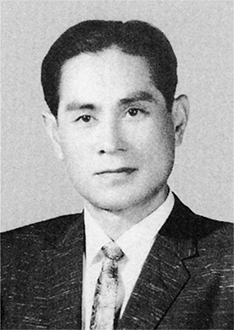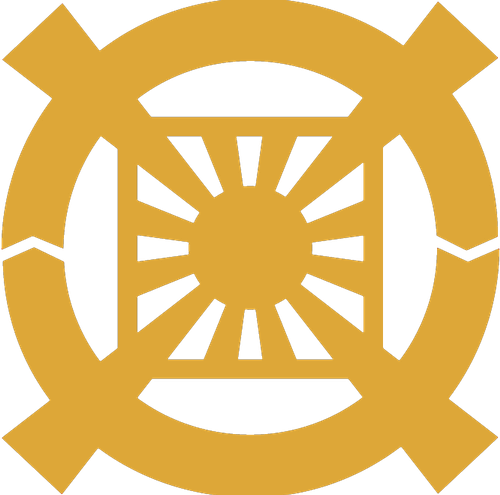The concept of the separation of powers into three branches of government was advocated by Montesquieu (1689-1755), a leading thinker of the Enlightenment. It sought to prevent the concentration of political power in the hands of a single individual or institution, as was the case with political absolutism.
The idea was proclaimed in the Declaration of the Rights of Man during the French Revolution. From the beginning, the separation of powers was to be characteristic of the political structure of the ideal society which God has been working to realize.
Yet here again, as we observe throughout the course of the providence, Satan was defectively mimicking an aspect of the Principle ahead of its realization by God. Let us then briefly examine the political structure of the ideal world.
The universe, as we have seen, is patterned after the structure of a perfect human being. By the same token, the ideal world to be built by fully mature people is also to resemble the structure and functions of a perfect individual (cf. Creation 1.1; 1.2; 3.2). By analogy with the human body, whose organs function in accordance with the subtle commands of the brain, all the institutions of the ideal global society are to abide by the desires of God.
Just as the commands of the brain are transmitted to every part of the body through the peripheral nervous system branching out from the spinal cord, in the ideal world God’s guidance is conveyed to the entire society through Christ, who corresponds to the spinal cord, and God-loving leaders, who correspond to the peripheral nervous system.
The peripheral nervous system branching out from the spinal cord corresponds to a nation’s political parties. Thus, in the ideal world, people of God led by Christ will form organizations analogous to today’s political parties.
In the human body, the lungs, heart and stomach maintain harmonious interaction in accord with the directions of the brain, transmitted through the spinal cord and the peripheral nervous system. By analogy, the three branches of government in the ideal world – the legislative, judicial and executive branches – will interact in harmonious and principled relationships when they follow God’s guidance as conveyed through Christ and people of God.
Just as the four limbs of the body move according to the commands of the brain for the welfare of the individual as a whole, the economic institutions of the ideal world, corresponding to the limbs, will uphold the desire of God and promote the welfare of the entire world. Just as the liver stores nourishment for the entire body, in the ideal world there will always be a certain reserve to be tapped as needed for the public good.
Since every part of the human body has a vertical relationship with the brain, horizontal relationships are naturally established between the different organs to form an integrated organism.
Likewise, in the ideal world, because people’s horizontal relationships with each other are rooted in their vertical relationship with God, they will form one integrated and interdependent society in which they share all their joys and sorrows. In this society, to hurt someone else will be experienced as hurting one’s own self. Hence, its citizens simply will not want to commit crime.
Let us now examine how, in the providence of restoration, God has been working to restore this ideal social structure.
In the course of Western history, there was a time when the functions of the three branches of government and the political parties were concentrated in one individual, the king. This was modified from time to time when the king dominated the government, while the Church under the leadership of the papacy played a role similar to that of a political party.
The political system underwent a fundamental change at the time of the French and American Revolutions when the government was divided into the three branches – legislative, judicial and executive – and political parties took on distinct roles. With the establishment of constitutional democracy, the framework for the ideal political system was set up.
Thus, political systems have changed over the course of history because fallen human society was being restored to the ideal society, the structure and functions of which will be patterned after a perfected individual. Today’s democracies, characterized by the three separate branches of government and a proliferation of political parties, resemble the structure of a healthy human body to some extent.
Nevertheless, because of the Fall, today’s democracies in fact bear more of a likeness to the body of a sick or injured person. They cannot fully display their original qualities and functions to their full potential. Since the political parties are ignorant of the Will of God, they may be compared to a nervous system which is unable to transmit directions from the brain.
Since constitutions are not written in accordance with the Word of God, the three branches of government currently function like internal organs which cannot sense or respond to the commands of the brain because the peripheral nerves have been severed. They lack order and harmony, and suffer continual conflicts among themselves.
Therefore, Christ at the Second Advent will remedy the illness of the present political system that it may reflect God’s design by restoring people’s vertical relationship with God. This will unleash society’s true potential.




